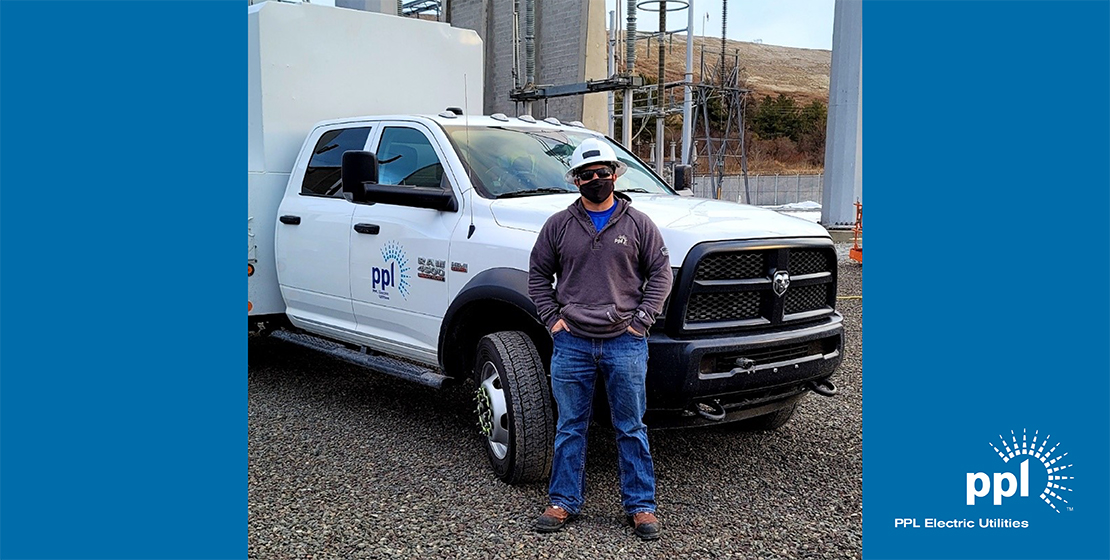
Mar 19, 2021 | Community Involvement
Mike Bezick’s day-to-day routine as a journeyman, doesn’t normally include helping a stranded customer. But one cold day this winter, that’s exactly what he did.
As Mike drove back to our Lehigh Service Center during a fresh snowstorm, he discovered a vehicle that slid off the roadway into a tree. Mike stopped to see how he could help.
After assessing the situation, he confirmed the driver was conscious but recognized he could not exit his vehicle. The tree was blocking the drivers’ door. Mike, concerned for his safety, immediately called 911 to report the accident. Then he stayed with the driver, keeping him calm, until the emergency responders arrived.
Our employees are always willing to offer a helping hand, whether that means volunteering in their local communities, or stopping at the scene of an accident. Mike embodies our corporate values. And we’re proud of the courage and kindness he displayed as he helped a customer in need.
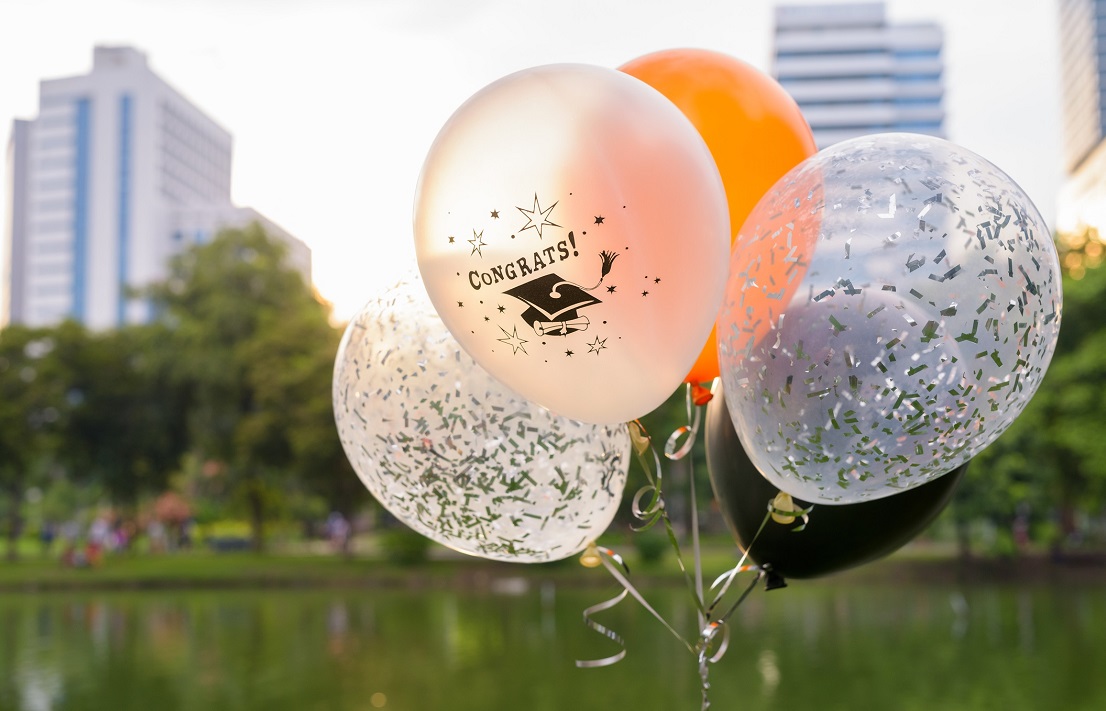
Feb 16, 2021 | Safety and Security
In-person gatherings may be limited again this year, but that doesn’t mean we’re skipping celebrations altogether. Despite the pandemic, birthdays, graduations, weddings and holidays are still taking place – and balloons are still a preferred way to mark the occasions.
Balloons – particularly balloons made of mylar – are fun and festive, but did you know that they could also pose a safety risk around electrical wires?
Mylar balloons have a metallic coating that conducts electricity. If a mylar balloon drifts off and touches an overhead power line, it can lead to downed wires, fires or other injuries; and, it could cause power outages.
Help us keep our communities safe – and keep the lights on – by making sure you hold on tight to those mylar balloons. Tie them to a secure object, and if it’s a windy day, bring them inside just to be safe.
Source: Edison Electric Institute (EEI)
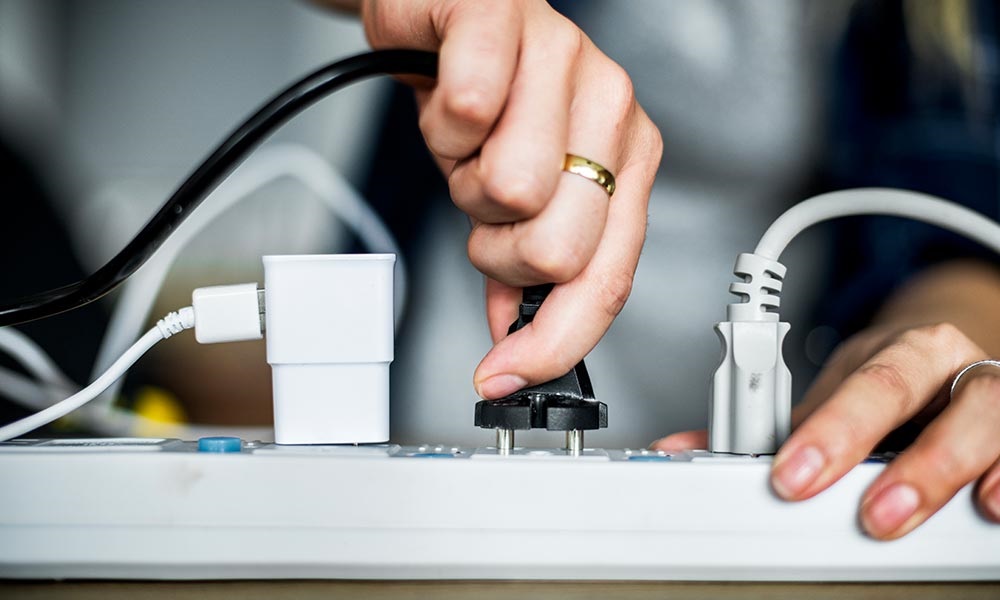
Jan 27, 2021 | Safety and Security
Spending more time indoors this winter?
We have 5 tips to keep you and your family safe around electricity this season:
- Space heaters can supplement your heat source, but never plug one into an extension cord. Make sure you plug your heater directly into an outlet to avoid fires.
- Install carbon monoxide (CO) alarms on every level of your home, especially outside of bedrooms.
- Inspect your power strips and extension cords regularly, and be sure to replace any fraying or damaged cords, which can cause fires.
- If you need to use a generator, place it in a cool, dry, well-ventilated outdoor location.
- With remote work and virtual schooling, you probably have lots of electronics plugged in around the house. Unplug items, such as cell phone and laptop chargers, when you’re not using them to avoid overloading your outlets.
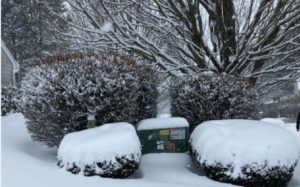 And while we’re on the topic of winter, remember not to bury our pad-mounted transformers when shoveling snow or using a snow blower. And please don’t let young children play on or around them. It’s important to keep the transformers visible and easily accessible for our crews.
And while we’re on the topic of winter, remember not to bury our pad-mounted transformers when shoveling snow or using a snow blower. And please don’t let young children play on or around them. It’s important to keep the transformers visible and easily accessible for our crews.
For more safety tips in and around your home, visit pplelectric.com.
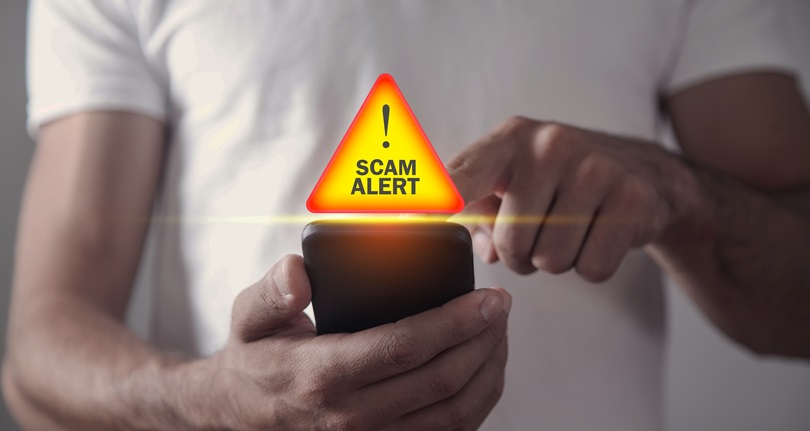
Jan 21, 2021 | Safety and Security
On one front, this year is picking up right where 2020 left off: Scammers are still on the prowl.
We – as well as other utilities across the country – are seeing an increase in fraud and deceptive marketing tactics so far in 2021.
Here’s the good news: We’re all getting smarter when it comes to spotting a scam, and we want you to know the warning signs so you can keep your peace of mind – and your pocketbook – intact.
Have you ever received a call allegedly from PPL promising you a better rate for your electricity supply? Scammers are savvy. They can make their calls display PPL’s phone number on your caller I.D. But surely, it wasn’t us.
Maybe you received a threatening text message with a link to pay your electric bill to avoid a shut-off. The text may have offered a digital payment option. Again, that wasn’t us!
Or, worst-case scenario, someone who claimed they were from PPL showed up on your doorstep, in the middle of a pandemic, and offered you a fantastic deal on your electricity supply. Like your parents always said, if someone offers you a deal that’s too good to be true, it almost always is. And that individual certainly was NOT from PPL.
How do we know these weren’t PPL employees making these claims? Because we don’t do business that way. We never market on behalf of electricity suppliers, and we never make threats. If you’re behind on your bill, we’ll discuss options with you and develop a payment agreement to keep your lights on. We’ll never demand immediate cash to avoid shutoff.
If you’re concerned that you might be the target of a scam, be sure to log in to your secure online PPL account to verify what the caller is telling you. You can easily check your rate, verify any amounts due and make payments through our secure systems. If you need help setting up your account, call us at 1-800-342-5775.
Want more tips on how to spot fraud and deceptive marketing? Check out pplelectric.com/scams.
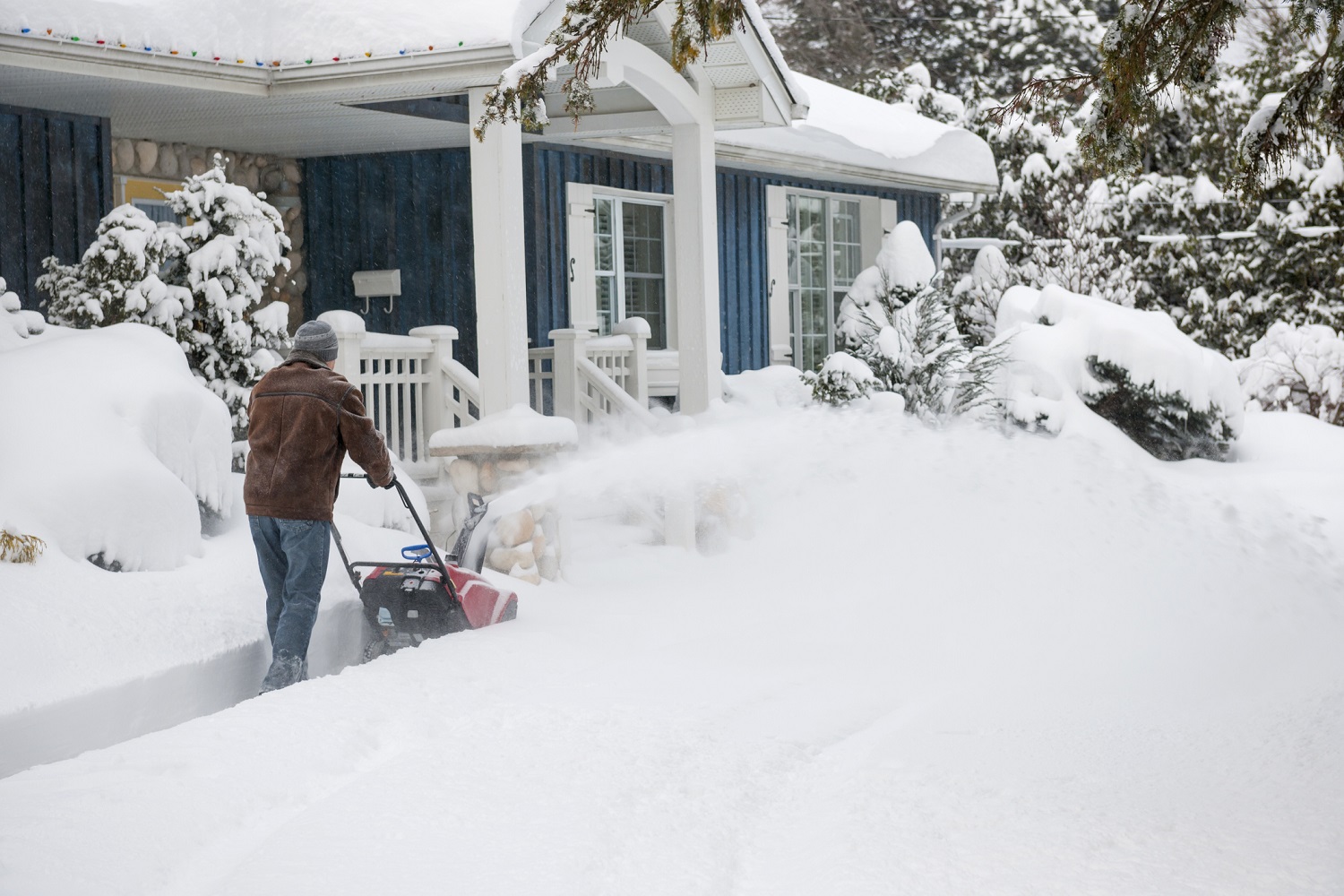
Dec 14, 2020 | Safety and Security
Whether you love winter, hate it, or simply don’t give a snowflake, we want you to stay safe when a winter storm strikes. ❄️
Electrical safety is just part of the story when the snow starts piling up. We’re ready to safely respond to any resulting power outages. The question is: Are you prepared to stay safe – at home and on the road?
Here are 10 ways to stay safe when Mother Nature really brings the snow.
Snow Removal
- Don’t wear loose clothing, like scarves, that can get pulled into a snow blower’s moving parts.
- Always turn off your snow blower, or unplug it if it’s an electric model, before clearing a clog at the auger or discharge chute.
- Start and run your snow blower outside, never in a garage or enclosed space where carbon monoxide can accumulate.
- If you have a history of heart problems, or you’re inactive, check with your doctor before shoveling. And stretch beforehand to prevent muscle injuries.
- Dress in layers and drink plenty of water to stay hydrated. It’s not a race. Take breaks if you get tired.
Driving
- If you don’t have to travel – stay home. Winter weather causes about a half million crashes each year, resulting in over 2,000 deaths.
- If you must drive, slow down, accelerate and decelerate slowly, and increase your following distance to 5 or 6 seconds.
- Going long distance? Let others know your destination, route, and estimated arrival time. Pack a kit that includes blankets and heavy clothing for emergencies, along with extra food and water.
- If you’re stuck, stay with your vehicle. If necessary, clear the exhaust pipe to eliminate deadly carbon monoxide fumes from entering your vehicle. To conserve gas, run your car for short periods, just enough to remove the chill.
Electrical Safety
- Always stay clear of any downed power lines and call PPL at 1-800-342-5775 to report them. Assume any downed line is energized.
Sources: American Automobile Association; Consumer Reports; Mayo Clinic; PPL Electric Utilities






